|
At first, they kept Her on the chair in Veronica’s room. Little Veronica who collected rocks and kept them in the pockets of her coat when the family would go for walks in the wood. Little Veronica, who would proudly tell you she was five even though she’d been six going on seven months now. After little Veronica woke up the entire house screaming about Her, they’d moved Her into the attic. It was the only way to stop little Veronica from screaming and thrashing in her bed. Her words were slurred with a child’s mercurial terror, but the message was clear anyway, “She’s watching us sleep! She’s watching us sleep!” It was dear Dad that saw it next. Dear Dad, with his ugly ties and bags under his dim eyes. Dear Dad, with a house he couldn’t afford and a job that was eating away his life 50 hours a bite. He’d awoken to a creak. Dear Dad had walked into the hallway, only to find the stairs into the attic extended down. He’d closed it, understandably dismayed. When he’d come back to bed, Her was sitting on the bedside table. Dear Dad dropped Her into the dumpster outside, cursing her under his breath as he went along. He didn’t want it in his house, even if he didn’t believe that Her was anything more than what she appeared to be. It was lovely Mother—while dear Dad was at work—who found Her at the kitchen table. Lovely Mother smiled because she knew her little one was playing, growing, imagining. It warmed lovely Mother’s heart and made her wistful all at once. Her watched, Her watched. It was vile Her who found her way into the bed of Mother and Father, vile Her with her porcelain skin, blue dress, and black eyes. No one had purchased Her, no one had carried Her home from any vendor or store. She appeared one day in the house of this family, an invader from another place and another time. Vile Her, with her hungry eyes and voracious appetites. It was Vile Her who looked over lovely Mother and found Her way into the fleshy part of lovely Mother’s brain, the invader breaching those soft walls. When the morning came, Vile Mother sat with Little Veronica and Dear Dad. Her family continued on their lives, blissfully unaware of what had transpired. It was Vile Mother who watched. It was Vile Mother who would act next.  Logan Noble is a horror and science fiction writer who lives in England with his wife and two dogs. His short stories have appeared in a number of anthologies and magazines, including Pickman's Gallery, Miskatonic Dreams, Deracine Magazine, and Sanitarium Magazine. His fiction and blog can be found on logannobleauthor.com and you can follow him on Twitter @logan_noble. On my broken back I carry the world: hungry children drinking the minerals from my exposed bone; battered women prickling me with needles, yet even they, adept at the art of patching things up, defeated by my tectonic fissures and split vertebrae; men who—for lack of softness to scar—destroy themselves, fashioning bandages out of my peeling skin. And those who are neither man nor woman, dangling from my ragged clumps of fur, clinging tooth and nail to the forces trying to forsake them. Rotten roots attempt to trip me, birds made of pure keratin and spite, swooping down. Carnivorous bracken find no flesh left to nibble. The tears of my passengers, acid rain over ravaged earth. I run quadrupedal, leaping over fermented fords of ichor, bounding through woods of my fellow skeletons growing into trees, limbs into boughs. But I have many more journeys left inside me before I fall apart and my passengers do too, before we are all dust and ghosts, feeding this broken-backed world.  Avra Margariti is a queer author, Greek sea monster, and Pushcart-nominated poet with a fondness for the dark and the darling. Avra’s work haunts publications such as Vastarien, Asimov’s, Liminality, Arsenika, The Future Fire, Space and Time, Eye to the Telescope, and Glittership. “The Saint of Witches”, Avra’s debut collection of horror poetry, is forthcoming from Weasel Press. You can find Avra on Twitter (@avramargariti). The funeral parlor smells of potpourri and faux beauty. There's itchy chairs with floral upholstery that almost match the wallpaper and green carpet. The body of Our Father lays in a cherry wood casket at the front of the main room. We're all wearing our ceremonial cloaks to honor Him who left before His time. Brother Coleford stands by the casket with a lit candelabra, whispering and begging Him to give us words of wisdom from beyond the grave. Brother James asks the funeral manager if he could step outside and give us a few minutes alone with the one we lost. The manager is hesitant at first. I can tell by the way he studies Brother James’ face, but he agrees to give us a little time. A little time is all we need. Brother James and I walk him out. I prop one of the chairs under the handle of the door and turn the deadbolt while Brother James shades the windows with the blinds and chintzy curtains. Some of the other Brothers pull jars of sacramental oil from their cloaks, and we all circle around the casket to hear the final words Brother Coleford has to say about the Great Man Himself. Without Him, we Brothers are lost. Without His leadership, the meaning of life, our existence, and who we are is dismantled. He was great for His ideals. Great for everything He did for us, for mankind. He left before His time, so not many in this terrible world heard the pure words or message He tried to spread. Not many followed Him. But those of us who did, we know the truth. We believe His message. We know what it will take to cleanse the world of its disease. We’re ready to begin. The funeral manager must’ve changed his mind about letting us be here alone. He tries the door, and when he finds it won’t open, he starts beating on it, his shouting muffled by the thick oak doors. We ignore the distraction. Brother Coleford reads a passage from Our Father’s own diary. A message about the Great Cleansing of the world. About peace. We bow our heads while we listen and repeat The Cantos as a group. The wicks in Brother Coleford’s candles are diminishing. We’re almost out of time. The Brothers with sacramental oil pass the jars around the circle. We each take turns spreading some of the oil on our cloaks. It’s putrid but potent. It won’t take much for the flames to lick and take. We douse the ugly carpet around us, the casket, and Our Father Himself. We loved this man. We loved His wisdom, His teachings. And we know that death will have no hold on us. We know we will rise again, stronger. Equipped to cleanse the world of its souls. To be the hand of damnation to unite the living with the dead. We are Brothers of the Sacred Order. And so we have no fear when Brother Coleford starts the flames to our cloaks. We will return.  Eric Fomley’s work has appeared in Daily Science Fiction, Galaxy’s Edge, and Inferno! Volume 6: Tales from the Worlds of Warhammer. You can read more of his stories on his website ericfomley.com, follow him on Twitter @PrinceGrimdark, or support him on patreon.com/Fomley. Jo had been suffering from a dull ache behind her left eye most of the day, but driving home from work had made it considerably worse. Every sound seemed to be magnified to an excruciating level, whether it be road works or car horns or police sirens. Everything caused pain. Twice she pulled over because of the gnawing she felt in her brain, and the journey wasn't more than fifteen minutes. By the time she parked the car outside of her home, the dull ache had become a full-on pounding, as though war drums were being played inside her skull. She sat in the car, eyes closed with her head on the steering wheel, and breathed trying to black out the outside world. No avail. That night brought no rest, no solace. Jo had taken a handful of painkillers and placed a damp cloth over her eyes, and laid down in a totally dark room. If anything, the lack of distraction just made the pain worse as it was all she could focus on. Sitting up, she told herself that she was going to the doctor first thing in the morning and get this sorted out, whatever it was. Naturally, Jo thought of the absolute worst, that it might be a tumour of some sort. But she pushed those thoughts away as soon as they came, or at least tried to. Jo was up and moving about, albeit very slowly, as soon as the sun was, due largely to having been awake all night. She showered, got dressed, finished off the painkillers that she had despite them not making any difference, and headed out. Deciding driving probably wasn't the best idea, she took a taxi, only hoping that the driver didn't want to have a conversation with her because talking was certainly not an option. Luckily Jo was able to walk right in to see the doctor as the 9 am appointment hadn't shown up. The doctor was a slender man with a complete lack of people skills, but he knew his profession well. He asked perfunctory questions: Have you taken any medication? Yes. What? Painkillers? How many? All of them. As he began his examination. He stuck a light in Jo's ears. He pulled her lids down and shone a light in her eyes. ”I can't find anything wrong with you,” the doctor said, scribbling notes. ”Well there is,” Jo protested, the anguish clear on her face. ”I believe you,” the doctor replied, putting his pen down. “I'm going to send you for a-” Jo screamed out in terrible pain; it was a howl of agony. Her hands clawed at her skull, the nails causing rivulets of blood to trickle down her face. Her eyes were clenched tightly closed, feeling as though they were going to explode from their sockets. The left eye was slowly pried open from the inside, revealing a small yellow worm crawling, wiggling, thrashing about in the open air. Jo's eyelids sprang apart, revealing the worm had drilled its way dead-centre through the pupil. The front of her head exploded then, revealing several longer, bigger yellow worms crawling over each other in a lazy orgy. Blood poured from the open wound, as it did, revealing tiny white-yellow buds. The doctor immediately knew these were unborn babies. Jo stood there, her mouth hung open like a stupid, wide cavern. Her eyes were wide open, the one still in-tact glassy like a marble and slicked in blood. She twitched once, then fell to the floor, dead. The worms continued to spill out from the head wound. The doctor stood back, watching on in horror-induced numbness. He carefully stepped around the twitching, fresh corpse with the worms slithering over each other, now bathed in blood, and exited the office. The waiting room was filled with people holding their heads in pain.  James has been writing for the past 20 years. His professional writing career includes feature-length and short screenplays, novels, short stories, and lyrics. Away from writing, he owns and runs a successful self-defence club, Reality Based Urban Defence (rbud.co.uk), is a director of the production company Happy Buzz Entertainment Ltd, and is currently studying for his degree in Marketing. He considers Stephen King a personal idol. When Timber Ghost Press first opened for business, we also opened for novel and novella submissions. We waded through the first few waves of submissions. Some of the stories didn't quite fit the tone we wanted to portray here at Timber Ghost. Some didn't quite make the mark. However, there was one submission that stood out in that first wave. That submission was 21 Grams by M. Regan. Their writing, voice, tone, and atmosphere was spot on. The story itself is beautiful, harrowing, and horrifying in so many different ways. Of course we had to say yes and publish it. Fast forward to today, and 21 Grams continues to garner praise and love from its readers. It got us thinking though, what influenced M. Regan? That led us to the question, what top five authors or books influenced you the most. Read on to find out. “Embarrassed” isn’t the right word. It’s not that I’m embarrassed. But there is a consensus of generally agreed-upon Influential Horror Writers (trademark pending) with whom credible authors are meant to align themselves. When such an author is asked, “whose work do you admire” or “whose work inspired you,” there ought to be at least one literary great thrown in there, if but to showcase the respect that is felt for this genre’s longstanding roots. Which brings us to a definitely-not-embarrassing confession from me, a person who is trying very hard to be a credible author: I don’t really care for any of the Influential Horror Writers (trademark pending). That isn’t to say I haven’t been informed by them or their work. There is, for example, a great deal of Mary Shelley’s influence in my debut novella, 21 Grams. That was entirely by design. And anyone who has a passing familiarity with my short stories will suspect I sold my soul to publish so many pieces that pay homage to Faust. I can— and do— acknowledge horror’s erudite sires. (I also pay my dues to the HWA, and make the appropriate ritual sacrifices when the stars are in alignment. I really am trying, here.) The issue, as it were, is that these foundational texts were not the foundation that I, as a young and impressionable reader, constructed my inner worlds upon. Instead, my teeth were cut on media that had been derived from them: that had taken and twisted those ideas and themes into tales more grandiose, more controversial, more depraved, more relevant, more innovative. By the time I was old enough to appreciate the source material, those original works felt very basic by comparison. They did not surprise me. They did not delight me. They did not do that which I most desire from the media I consume: They did not make me think. “Speaking of thinking,” you might now be muttering to your screen, “why do you think I care about your opinions on stories?” That is a very good question. And the answer is: you shouldn’t care! What do my feelings on this topic matter? You do you, as a great philosopher once said. If I don’t like something, more of that something for you to enjoy! Have at it and have fun. However, for those of you who think they might be interested in doing a bit more thinking, I offer humbly unto you: 5 Pieces of Horror/Horror-Adjacent Media That I Found Exceptionally Thought-Provoking GOTH by Otsuichi / translated by Andrew Cunningham (Novel) Originally published as a series of novelettes, this translated compilation of Japanese horror follows a pair of high schoolers who forge a permanent bond over their shared interest in darkness, death, and the endless parade of murders that just-so-happen to take place in their town. Think “Scooby Doo,” but the mysteries come to them. Also, Fred is a sociopath. This might be the time to admit I don’t know a ton about “Scooby Doo.” GOTH is a book about many things, but definitely not friendship. For people who enjoy stories about “man being the monster”— possibly literally— I cannot recommend this collection highly enough. The Bartimaeus Sequence by Jonathan Stroud (Novels) “But Regan,” you say, “I’ve just looked it up. This is a young adult series about magicians. It’s listed as a fantasy. It’s not horror at all.” To which I look you dead in the eyes, unblinking, for a solid 10 seconds before asking, “Have you read it?” Set in an alternate-universe London where the government is comprised of magicians, The Bartimaeus Sequence follows a young and ambitious boy named Nathaniel as he follows his political dreams with the (often begrudging) help of a snarky 5,000-year-old djinni named Bartimaeus. It is comedic, it is cutting, and there are scenes within its pages that scare me to this day. But more than that, it is important, exploring in explicit detail themes of exploitation, slavery, government corruption, and systemic abuse of the disenfranchised. I am on my knees begging you to toss your copies of Harry Potter and pick up Bartimaeus instead. Puella Magi Madoka Magica by Magica Quartet (Anime) In many ways, I’m being a bit of a hypocrite by including this one. But when Madoka first aired in 2011, it was revolutionary in the way it reinterpreted the “magical girl” genre. And unlike, say, the original books and plays about Faust, I happened to be around for this one. Hey, here’s a segue for you: For what wish might you sell your soul? Made of sugar, spice, and crushing existential horror, Puella Magi Madoka Magica is a phenomenally written and gorgeously produced animation that is sure to appeal to those who want a few more decapitations in Sailor Moon. From the New World (Shinsekai Yori) by Yusuke Kishi / A-1 Pictures (Anime) Set one thousand years after a telekinetic apocalypse has destroyed the world as we know it, a group of friends begin attending their local psychic school. But what about the other children in their town, the ones whose mental powers never manifest? What waits in the forests outside the utopian Kamisu 66? And what, ultimately, does it mean to be human? I was employed by Crunchyroll as a localization editor for a time, and of all the series I was privileged enough to work on, this was the one that most blew my mind. The Magnus Archives by Jonathan Sims (Podcast) A veritable shrine to all knowledge paranormal and esoteric, the Magnus Institute is an academic organization dedicated to the pursuit of supernatural research. They also have an exceptionally messy archive. Determined to derive order from chaos, the Institute’s new archivist, Jonathan Sims, has decided to try and digitize the written statements of people who claim to have experienced strange happenings. And from there— as if from the hub of a great web— the red threads start to spread, and tangle, and knot. This podcast is what sustained me through the beginning of the covid pandemic. Not to put too fine a point on it, but it is one of the most intricately crafted and phenomenally executed stories that I have ever been told, and I cried for four and a half days when it ended. If you are a fan of creepypasta, cosmic horror, and casual queer representation, give it a listen; there is a reason that this show has racked up so many awards. Well, then— I’ve shown you mine. Any interest in showing me yours? What stories have haunted you the longest? Which series have made homes in your brains? Which media have you found the most thought-provoking? Let me know! Give me something new to think about! M. Regan has been writing for over a decade, with credits ranging from localization work to short stories to podcast scripts. Fascinated by the fears personified by monsters, they enjoy dark fiction, studying supernatural creatures, and traveling to places rich with folklore. Find them on Twitter and Facebook.
“Houston!” the astronaut said, but he failed to complete the well-worn cliché. The on-board cameras, however, were unambiguous in showing the world what unfolded next. The crew of the resupply vessel appeared to shimmer, became translucent, fragmented into ashen dust, and dissolved into nothingness. The spacecraft, now minus a human component to direct its course, continued its trajectory into the infinity of deep space. Meantime, on the International Space Station, where the personnel had been expecting the crew of the resupply vessel to replace them so they could return to Earth, every man and woman aboard also vanished. Alien abduction? Sabotage? Abnormal sunspot radiation? Pundits and laymen alike took their pick of the abundant conjectures and conspiracy theories concerning the astronauts’ disappearance. Across the globe, the launching of manned spacecraft was indefinitely put on pause until more was known about the unprecedented phenomenon that had occurred. Then, a month later, aircraft started dropping out of the skies. “There are no corpses or body parts amongst the wreckage,” a rescue team reported from a debris-strewn field in Western Australia, and in doing so, reignited theories of alien abduction. At international airports across the world, all commercial airliners were grounded, while private jets were consigned by law to their hangars until further notice. Soon after the cessation of airline transportation, a Filipina mountaineer radioed to base camp from the heights of Mount Everest. “I can’t see any of the other climbers in my party,” she said, her voice quavering. “They were a little ways ahead of me. I can see clearly all the way to the summit, but there’s no one there—no one.” That was the climber’s final communication. End-of-the-Worlders and alien abduction conspiracists vied for the attention of an increasingly frightened global audience. In the Rockies, the Alps, the Himalayas, climbers willingly ascended the tallest mountains, never again to be seen, trekking upwards in hopes of a religious resurrection or of a meeting of minds with extraterrestrials. As the diurnal revolution of the earth continued, and as life tried to go on as normal in spite of the growing fear, a radio sports commentator broadcast an international football match live from La Paz. “The half-time score is Bolivia two, Argentina nil,” he announced excitedly to soccer-mad South America, from the loftiest football pitch on earth. No second-half commentary was ever heard, though. The players, spectators and commentator went silent and were neither seen nor heard of again. No one bothered attempting to make their way to La Paz to find out why. With a mentality approaching denial and a forlorn hope that everything would miraculously return to normal, mankind carried on with its humdrum, day-to-day existence until an event occurred in the USA that was impossible to ignore. During a televised basketball game, the arena erupted with cheering as the Utah Jazz’s point guard made a flying slam dunk. In mid-air, however, his physical form blurred, broke into a million pieces, and was no more. Seconds afterwards, the gawping spectators and the players on the court and on the benches likewise vanished. On TV a few days later, a world-renowned zoologist announced an until then unobserved anomaly. “Pets and livestock, no longer under the domination of mankind, are wandering down from higher elevations, bleating and mewling with hunger. They are otherwise unaffected by this deadly anomaly that’s sweeping the upper reaches of our planet and depleting it of its people.” “We’re being exterminated for the sins we’ve perpetrated against Nature,” vegan anarchists asserted. “We’re being rounded up by aliens as a food source because of our overabundance on Earth,” advocates of population control countered. In a panic across the globe, folk fled to the planet’s lower-lying regions until, congregating on beaches, the survivors of ever-depleted humanity shimmered, fragmented, and were gone. Those who surged into the sea and dived under the waves lasted only a few seconds longer until the necessity to breathe forced them back to the surface, at which point they too disintegrated. Beneath the ocean, on board a mutinous British nuclear submarine that had refused to complement its crew with cabinet ministers and members of the royal family, the radio operator attempted to contact Faslane Naval Base in Scotland. While his captain stood on the platform at the periscope, disconsolately following the erratic course of a crewless cargo ship, the radio operator gave up attempting to contact anyone at their base. He sat back in his chair and shook his head. “I’m sorry, Captain. There’s just no reply.” “Captain?”  Paul A. Freeman is the author of Rumours of Ophir, a crime novel which was taught at ‘O’ level in Zimbabwean high schools and has been translated into German. In addition to having two novels, a children’s book and an 18,000-word narrative poem (Robin Hood and Friar Tuck: Zombie Killers!) commercially published, Paul is the author of hundreds of published short stories, poems and articles. He resides in Abu Dhabi. Finding the perfect editor for your work isn’t easy, but what doesn’t get talked about often enough is genre familiarity. Writers worry about cost, timeline/availability, an editor’s style, and most definitely references...but what too often gets overlooked is the need to find an editor who knows your genre. And an editor who knows their stuff when it comes to Horror, and not just stories and language, can be worth their weight in blood, sweat, and tears. Understand that we’re not talking about proofreading or copy-edits—any editor comfortable with those editing levels will be able to help you when it comes to that stage of polish. We’re instead talking about story—character, suspense, pacing, style, use of subgenres and tropes, and, when it comes right down to it, satisfying a horror reader. An editor who knows Horror isn’t just going to get sucked into your haunted house novel. They’re going to help you make it stand out as a haunted house novel, and if there’s a moment where you’re going wrong in a way that may well frustrate readers, they’re going to be able to tell you how and why so that you can fix the issue before you submit the work for publication. So, what can a Horror editor do for your Horror novel? First, let’s talk about an awareness of tropes and subgenres of horror, whether we’re talking about zombies, haunted houses, bad houses, possessions, vampires, or anything else. (And, yes, there is a difference between a bad house and a haunted house—and your editor better know that!) An editor is, first of all, a reader—they’re an early reader who’s going to help you understand how your novel is playing for a live audience. Part of that comes with helping you know for sure that you’ve delved into a subgenre’s territory without allowing it to come across as cliché or unoriginal. If your editor has only read Bram Stoker’s Dracula as far as vampire novels go, and you send them a contemporary tale of vampires, they’re going to see it as being pretty original. They won’t know any better either way. But if they’ve been reading recent vampire fiction, they’re going to have read a lot of unoriginal plots right along with all of the good stuff, and they’re going to be able to help you see where you might be going wrong, coming too close to another author’s presentation of tropes within a vampire novel, or simply not going far enough to satisfy an avid reader who’s read every vampire book released in the last decade. They’re going to have an awareness of your subgenre that is at your disposal once you’ve hired them, and they’re going to use that knowledge to your book’s advantage. Genre mash-ups come into play here, as well. What if you’ve written a bad house novel, heavy on suspense, but there’s a very definite romance subplot. And maybe you’ve got a good friend who writes Romance and who loves their editor, so it’s tempting to use their editor—that should be fine, right? Maybe...or maybe not. Ideally, you probably want an editor who works with (and loves) both Horror and Romance, but the important thing is your primary genre. You don’t want a reader to pick up your book thinking it’s a Horror novel, and then end up feeling like they’ve been tricked into buying a Romance. That will essentially land you with the wrong readers, or lead to you not getting that agent call or publication acceptance—because you’re submitting a Romance novel to a Horror agent/publisher/reader. So, yes, your editor needs experience with Horror first and foremost. That’s going to save you from pacing issues where the romance factor becomes too much of the focus and/or takes away from the suspense related to the horror element of your novel. Your editor will be there in Chapter 7 to step in and say, “Yeah, this is cute...but does it belong in this book? Can you find a creepier scene in which these characters can start flirting?” or “I like the way you introduce them, but your reader hasn’t been fully engaged with the house yet—I think you need to build a bit more suspense with the house before you lean in to this romance since not all readers will have come for the romance, and you don’t want to scare those readers off.” On an aside, I can tell you that I worked with a novelist some years ago who, if I remember right, went through four full rewrites of her Suspense novel before she threw her hands in the air and went in search of an editor. The problem? Her entire writing group was made up of Romance writers who didn’t particularly read the sort of novel she was writing. They meant well, but they were trying to help her fit her book into their understanding of beats and pacing, as related to Romance. That cost her years in rewrites (literally), and she only realized it once she found an editor versed in Suspense who could help her balance the different elements of her book—which had no romance in it to speak of. She needed outside eyes, but she needed outside eyes that knew her genre. Since then, she’s written four more books, none of which have needed a single rewrite. Gore/Detail is another area where having an editor versed in horror can make a big difference. Maybe you’ve got a scene where you’re wondering if you’ve gone too far with the blood and guts, or perhaps it’s the opposite and you’re worried you haven’t given enough detail to make a scene visceral in the way you intend. If you bring in an editor who doesn’t care for horror, they’re either going to skim those bits of your story—not doing justice to an edit or feedback—or they’re going to tell you to pull back on what you’ve got on the page, no matter how little ‘gore’ that is. That doesn’t make them a bad editor; it just makes them an editor who’s better suited to other genres. (There’s an argument to be made that they let you down ethically by accepting the job in a case like this, but the point is that not every editor is going to be suited for every book.) Your editor won’t have read every Horror novel out there—but if you tell them that you want to appeal to readers of, say, Clive Barker and Robert McCammon, they should know what that means on a level of detail/story. A Suspense editor may well tell you to cut that paragraph about how blood pools around your main character’s broken leg, bone sticking out, because it’s ‘too much’ or will ‘gross out your target readers’...but an editor of Horror who knows Barker is one of your influences might instead ask you about the shape of the pool of blood, the viscosity of it, or how much of the bone is jutting out. And you’re only going to be pushed to make the most of that scene if, you guessed it, you found the Horror editor. Last, and least tangible of all, we have to talk about passion. Like writers, editors aren’t doing what they do because of the money. They’re doing what they do because they love books and story-telling. You want an editor who’s going to be a cheerleader for your work, and who’s going to take all the time required to make sure that your work meets its full potential. You don’t want someone who’s going to get tired of the subject/subgenre, be grossed out by the blood or subplot, or think that your book isn’t ‘important enough’ for them to take the extra time needed to figure out a plot hole or exchange multiple emails about a particular chapter that’s not working as it should. If an editor tells you that your zombie is coming across as humorous instead of scary, they need to care enough to tell you why. And if what they say doesn’t make sense, they need to care enough to jump on a Zoom call with you and talk over the issue without being dismissive of it. Passion matters. Like others, I try my best to maintain a healthy work-life balance, but editing is in some ways quite a bit like writing when it comes to the passion for storytelling. If I’m working on a developmental edit and something is striking me as being not quite right, I’m going to think about it till I’ve figured it out. Sometimes, that might mean I finish an edit and include a note for the author saying, “The plot point about [insert issue] in Chapter 9 doesn’t work because [insert reason], and I’m not sure how to resolve that. I’m going to keep thinking on it and shoot you an email later this week, but let me know if you have an answer or want to chat sooner.” And then, I’ll keep thinking about that plot hole and how to help my client fix it—I’ll think about it while I’m in the shower, while I’m walking my dog, while I’m cooking, or whenever else my brain has a few minutes to consider it. Because I have a passion for Horror and for helping my clients make their books as good as they can possibly be. Will someone who doesn’t like Horror or your particular story do that? Maybe...but maybe they’ll also just tell you it doesn’t work, and they don’t know how to make it work, because they’d rather think about something else. And the thing is, I’m not that special in this regard. Every editor I know cares deeply about their clients and the stories they tell—but there’s a reason that even when writers come to us with a referral and say, “Hey, I heard you’re great from my friend Jane Doe...would you edit my novel?”, it’s not a matter of yes/no. We reply by first asking about their genre and what sort of edit they want. In some cases, we might want to know the subgenre, too, and in the end, we might have to suggest they hire someone else...or we might be holding our breath and crossing our fingers because they’re writing a bad house novel, and we love them. (I really, really do love bad houses, if you couldn’t already tell.)  Jennifer has been a full-time freelance editor since 2014, when she left academia and teaching behind in order to focus on editing and writing. She sometimes jokes that she specializes in all things dark, but more specifically, her work is focused on Horror, Suspense, and various subgenres of Sci-Fi and Fantasy, as well as a few subgenres of Romance (especially Paranormal). She primarily works on Adult fiction, but does occasionally edit speculative YA fiction (Horror, Fantasy, Sci-Fi). Most of her new clients come to her via referral, and she normally books out loosely 6-8 weeks in advance. You can contact her at JLCollinsEdits [at] gmail.com or follow her on Twitter here. At vision’s rim, curtain flutter, a shadow, a blur. My nerve ends twist, wrap round sinews, tighten me to a standstill. Something is in the room with me. Only one of us is breathing. 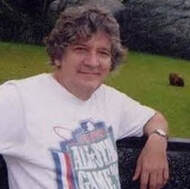 John Grey is an Australian poet, US resident, recently published in Sheepshead Review, Poetry Salzburg Review and Hollins Critic. Latest books, “Leaves On Pages” “Memory Outside The Head” and “Guest Of Myself” are available through Amazon. Work upcoming in Ellipsis, Blueline and International Poetry Review. Lone dead approach unbidden with requests. Eternal rest’s eclipsed by unmet needs. Preparing for the ask, its devil tease, The dropkick of the punchline, I’m composed. This won’t take long. Crisp salt-white speech is not A conversational duet. It’s brief. Succinct. Direct. Delivered neat. Deep-voiced. Or else transmitted silently, slipped thoughts, As if the listener’s reborn inside Unwritten books that stalk the author’s mind. Desires, regrets, or urgencies don’t die When bodies decompose to worm-sawed seed. Don’t think fierce yearnings laze about, content To swing in hammocks of the afterlife, Unhunted by the conscience’s sharp edge. Gut hunger’s not forgotten when homeless. Dumped six feet down, desires don’t get dismissed. Remorses, cravings, impulses revive, Resurface -- seeking friendly patronage. Why wouldn’t I oblige? Souled will still thrives. Returning home, before I hit the sack, I’ll muse: “When are the dead expected back?” 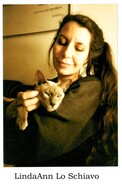 Native New Yorker LindaAnn LoSchiavo, recently Poetry SuperHighway's Poet of the Week, is a member of SFPA and The Dramatists Guild. Elgin Award nominee "A Route Obscure and Lonely" and "Concupiscent Consumption" are her latest poetry titles. Forthcoming is a paranormal collection of ghost poems, a collaborative horror chapbook "Santa Muerte," and an Italian-centric book, “Flirting with the Fire Gods,” inspired by her Aeolian Island heritage. Her Video-Poetry channel will give you nightmares. Follow LindaAnn below: https://linktr.ee/LindaAnn.LoSchiavo https://twitter.com/Mae_Westside https://www.youtube.com/channel/UCHm1NZIlTZybLTFA44wwdfg https://www.amazon.com/LindaAnn-LoSchiavo/e/B084WSGD5K/ Trudging through the field behind his house, eight-year-old Harry Cole was as mad as he had ever been. It had happened again, and now he was going to get a whooping. The sun shining on his face and the chirping birds didn’t cheer him in the least. He never had these problems when he was an only child. He approached the tree, venting out loud and stomping his feet against the scraggly grass. “Darn Tommy!” he bellowed. “He starts the fight, and now I have to go cut a switch so I can get a licking.” He ran his right hand over the familiar tree’s rough bark. “It isn’t fair!” “You’re right,” he heard a woman’s sweet voice say. “It’s not fair.” Alarmed, he looked around. “Who said that?” The echoing voice, accented by a sound like muted windchimes, was coming from the tree. “I did,” it said. Harry quickly circled the tree, expecting to find Helen Potts, that joker from school, pranking him. She wasn’t there. No one was. The boy stood tall, trying unsuccessfully to look imposing. “But you’re a tree,” he stated. “Trees can’t talk.” “We’re quiet most of the time,” the voice went on, “but if we really need to talk, we can—and I need to talk… to you.” “Me?” the boy asked, tempted to run away. “What did I do?” The tree was astounded. “What did you...” it began, waving some threadbare limbs about. “Look at me.” Harry did as he was told. Many of the tree’s branches were broken and frayed. “Yeah?” the boy asked. “I’m a mess, and it’s your doing.” “That’s because I had to get switches for Mom to spank my behind.” “Couldn’t you use a different tree from time to time?” “I tried that once,” Harry said, pointing at some oaks a few yards away. “I remember that day,” the tree replied wistfully. “What happened?” “Mom got even madder. She thought I was trying to put off my punishment. ‘Taking my sweet time,’ she said. The whipping I got was even worse than usual!” “I see,” the tree replied, dejected. “That’s why I keep coming to you. You’re closest to the house.” “You have to lay off of my limbs for a while. The other trees are starting to laugh.” “Trees can laugh?” “Oh sure,” the female voice told him. “We’re all connected by our roots. We know what’s going on with every other tree.” Harry couldn’t be sure, but he thought the tree leaned toward him. “Can you please leave me alone for a while,” it asked, “so I can heal?” “But I have to get a switch.” “There’s an alternative.” “What?” Harry eagerly asked. “You could behave.” “Huh?” “Don’t make your mother angry. That way, you won’t get punished, and I can recuperate.” “That’s so hard to do!” the boy complained. “It’s hard to behave?” “My little brother causes most of the trouble.” “That toddler?” the surprised tree inquired. “You know Tommy?” “You had a picnic under me the other day.” “Oh yeah,” Harry went on. “Anyway, he causes the trouble, and I get blamed. Then it’s switch time.” “Your brother’s only a little boy. He doesn’t know any better.” “He makes me so angry!” “When my brothers and I were saplings, they made me angry too. We’re great friends now.” “Yeah, but…” “You could do without the whippings, right?” “I sure could.” “Then behave,” the voice implored him. “C’mon. It’ll be good for both of us.” Harry leaned against the tree, turning the idea over in his brain. “I… can’t,” he finally said. “What?” “Sometimes, I don’t know what makes Mom mad. She just gets mad. I can’t behave if I don’t know what not to do.” “But my limbs–” the tree began, sounding on the verge of green tears. “You’ll be OK,” Harry said matter-of-factly, reaching for a switch. There was a loud crack as a branch above him broke off and hit the eight-year-old squarely on the head. He dropped to the dirt, unconscious. An odd whirring noise grew from nothing. It grew very loud. A brisk wind came on, stirring the fallen leaves all around the prostate boy. Less than a minute later, the sound and the wind stopped together, their work done. Harry stood, rubbing the bump on his head. He spoke and was surprised to hear that his voice now had the same echo and windchime sound of the tree. He felt himself slipping away, oozing out of his crowded body and onto—and then into—the tree. “You had your chance,” his voice said. “It was you or me.” The voice called to the oaks. “You’ll see that he behaves, my brothers?” The wind picked up again. The oaks’ limbs happily moved about more than the breeze stirred them. “Maybe your time will come soon? There are other family members.” The wind briefly blew even stronger. The brothers were delighted at the idea. Harry’s body dusted itself off, appreciating its new, young form. “I’d better get back to the house,” it said. “One spanking for what the boy did won’t be so bad.” Through a knothole in the bark, Harry’s spirit saw his body take a couple of steps away and then turn suddenly. “I almost forgot!” it said, plucking a switch from the tree which Harry painfully felt. “This one shouldn’t hurt too much.” It chuckled, noticing that the echo and chimes in its voice had faded completely away. “Yes,” it said, admiring the piece of its former self, “I can live with this… switch. 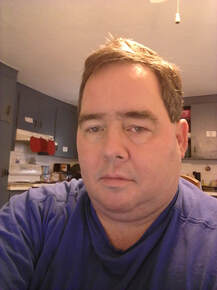 Mike has had over 150 audio plays produced in the U.S. and overseas. He’s won The Columbine Award and a dozen Moondance International Film Festival awards in their TV pilot, audio play, short screenplay, and short story categories. His prose work has appeared in several magazines and anthologies. In 2020, his screenplay, Die Laughing, was a semi-finalist in the Unique Voices Screenplay Competition from Creative Screenwriting magazine. The following year, his TV pilot script, “The Bullying Squad” was a quarter-finalist in the Emerging Writers Genre Screenplay Competition. Mike is the writer of two short films, Dark Chocolate and Hotline. In 2013, he won the inaugural Marion Thauer Brown Audio Drama Scriptwriting Competition. In 2020, he came in second. For several of the in-between years, he served as a judge. Mike keeps a blog at audioauthor.blogspot.com. |
Archives
June 2024
Categories
All
|
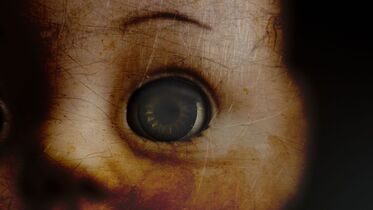



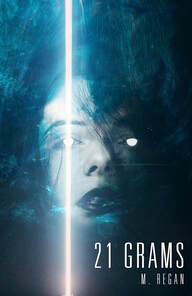

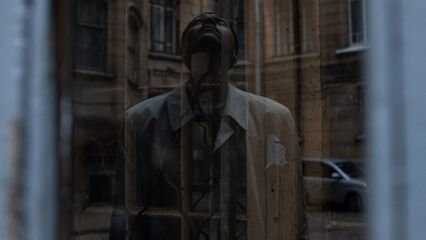

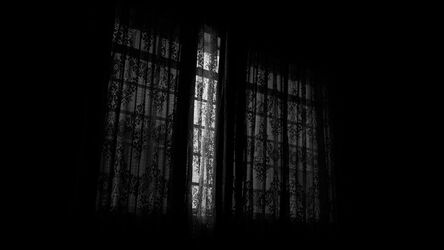
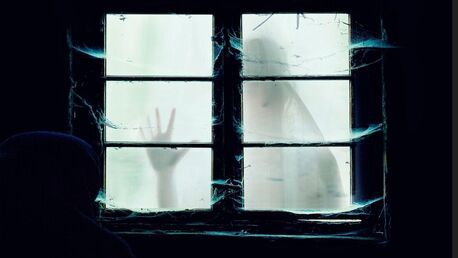

 RSS Feed
RSS Feed